Winnipeg Falcons Hockey Club National Historic Event
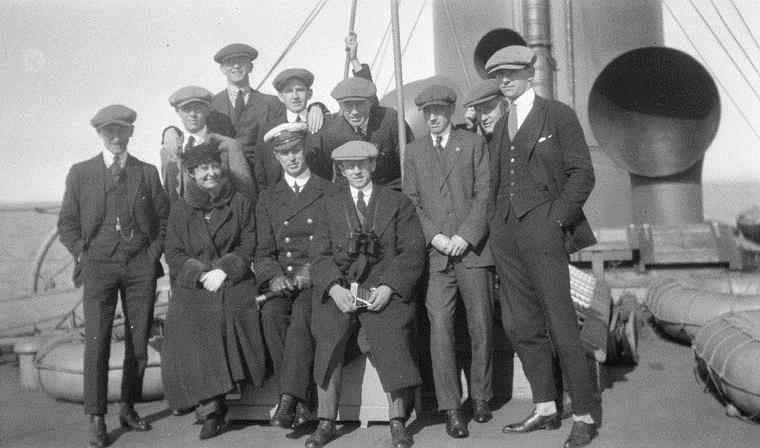
© Konnie Johannesson / Library and Archives Canada / PA-111330
The Winnipeg Falcons Hockey Club was designated as a national historic event in 2019.
Historical importance: Hockey team made almost entirely of Icelandic-Canadian players who won the Allan Cup and the first Olympic gold medal for hockey in 1920.
Commemorative plaque: in front of the First Lutheran Church, 580 Victor Street, WinnipegFootnote 1
The Winnipeg Falcons Hockey Club
The Winnipeg Falcons Hockey Club, founded through the merger of two Icelandic Canadian teams in 1909, rose from a community organization in the West End to become Canadian and Olympic champions. In 1920, the Falcons won the Allan Cup after beating a strong University of Toronto team in Canada’s senior amateur championship. That same year, they represented Canada in Antwerp, Belgium, where they won the first Olympic gold medal for hockey. The skill and sportsmanship of the Icelandic Canadians who dominated this club, named for Iceland’s national bird, have been a source of pride for people of Icelandic descent across the country.
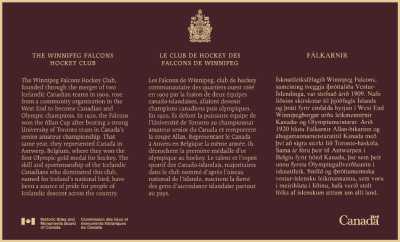
Fálkarnir
Ísknattleiksfélagið Winnipeg Falcons, sameining tveggja íþróttaliða Vestur-Íslendinga,var stofnað árið 1909. Nafn liðsins skírskotar til þjóðfugls Íslands og þrátt fyrir einfalda byrjun í West End Winnipegborgar urðu leikmennirnir Kanada- og Ólympíumeistarar. Árið 1920 hlutu Fálkarnir Allan-bikarinn og áhugamannameistaratitil Kanada með því að sigra sterkt lið Toronto-háskóla. Sama ár fóru þeir til Antwerpen í Belgíu fyrir hönd Kanada, þar sem þeir unnu fyrstu Ólympíugullverðlaunin í ísknattleik. Snilld og íþróttamennska vestur-íslensku leikmannanna, sem voru í meirihluta í liðinu, hafa verið stolt fólks af íslenskum ættum um allt land.
The Winnipeg Falcons Hockey Club
The Winnipeg Falcons Hockey Club was formed in 1909 through the merger of two Icelandic-Canadian teams—the Icelandic Athletic Club and the Vikings—and named after Iceland’s national bird. The Falcons’ skill, speed, and sportsmanship provided a focus for Icelandic-Canadian pride and identity in the years before and after the First World War. They won Canada’s senior amateur championship, the Allan Cup, in 1920, beating a strong University of Toronto squad. That same year, they represented Canada at the Olympics in Antwerp, Belgium, winning the first Olympic gold medal in hockey.
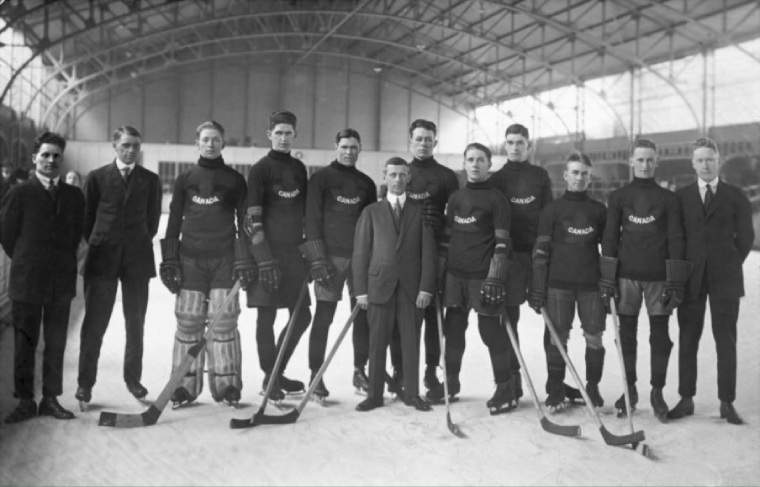
© Glen and Brian JohannessonFootnote 2
The Falcons played their inaugural season in the intermediate Manitoba Independent League, alongside the Monarchs, the Winnipegs, Kenora, and Brandon. The Falcons and Monarchs finished tied for first that season, but when they both applied to enter the city senior league, only the Monarchs were accepted. The Falcons persevered in various formations of the Independent League, and were finally admitted to the senior league’s second tier after a particularly strong showing in the 1914/15 Allan Cup playoffs. By this time, however, the First World War was raging in Europe, and in 1916 the entire Falcons lineup enlisted. Most of them joined the 223rd Battalion, CEF. Six of the players saw active duty and two were killed.
After demobilization, the Falcons reformed. They were again denied entry to Winnipeg’s senior league and ended up forming a new league with Selkirk and Brandon. The champions of the two leagues met in the Allan Cup playoffs in 1920, and the Falcons proved their quality by defeating the Winnipegs 5-0 and 10-1. They beat the Fort William Maple Leafs 7-2 and 9-1 to win the Western Hockey Championship. Finally, the Falcons met the University of Toronto (‘Varsity’) in the Allan Cup final, and won the Canadian amateur championship over two hard-fought games, winning 8-3 and 3-2.
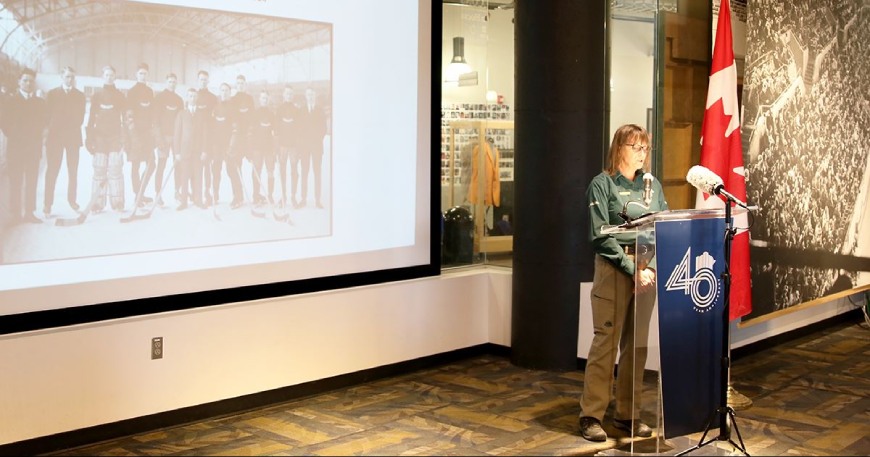
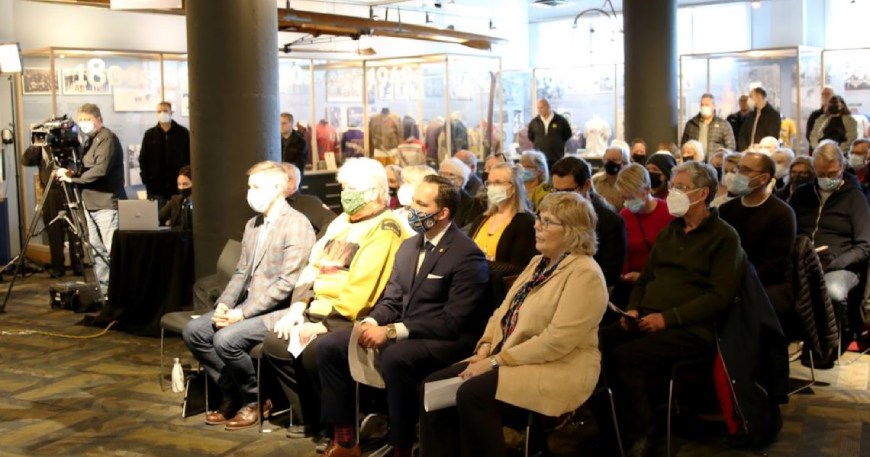
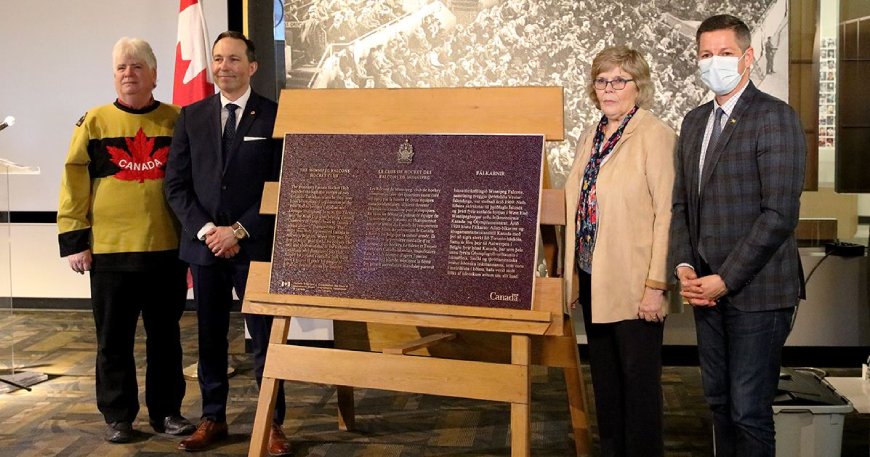
The Canadian Olympic Committee had already decided that the winner of the Allan Cup would represent Canada at the 1920 Olympics in Antwerp, Belgium. These were the summer games (the first Winter Olympics were not held until 1924), so the hockey competition had to be held early to take advantage of the natural ice. They swept to the gold medal, defeating Czechoslovakia 15-0, the United States 2-0, and Sweden 12-1 in the final. The Falcons returned home to wild applause in Parliament, in the media, and in the streets of their home town of Winnipeg. They had also attracted the attention of talent scouts, and three key players soon left to play professional hockey elsewhere.
The future still looked bright, as the Falcons’ junior team won the Memorial Cup, Canada’s junior hockey championship, in 1921. The senior team won the Manitoba Senior Championship again in 1923, but for the 1923/24 season, they amalgamated with the Winnipeg Tigers to form the Falcon-Tigers. The Falcon Athletic Association resumed activities in 1928 and the Falcons Hockey Club was revived in 1932, but finally merged with the Rangers in 1938.
Backgrounder last update: 2022-04-12
The National Program of Historical Commemoration relies on the participation of Canadians in the identification of places, events and persons of national historic significance. Any member of the public can nominate a topic for consideration by the Historic Sites and Monuments Board of Canada.
Related links
- National historic designations
- National historic persons
- National historic sites designations
- National historic events
- Submit a nomination
- Heritage minutes: Winnipeg Falcons (Historica Canada)
- Government of Canada honours national historic significance of the Winnipeg Falcons (news release)
- Plaque unveiling announcement on April 26th, 2022: Facebook, Twitter
- Date modified :